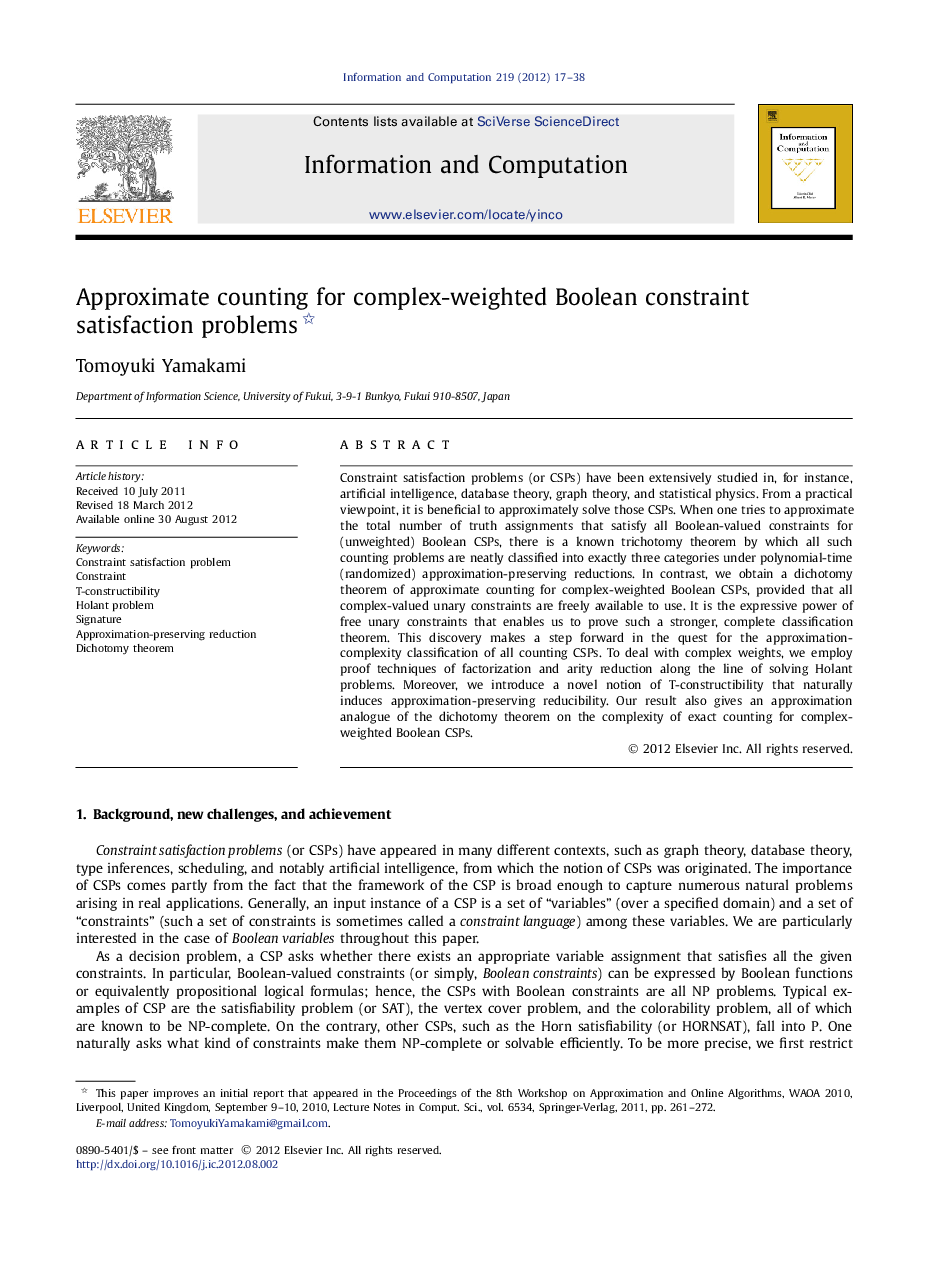| Article ID | Journal | Published Year | Pages | File Type |
|---|---|---|---|---|
| 426109 | Information and Computation | 2012 | 22 Pages |
Constraint satisfaction problems (or CSPs) have been extensively studied in, for instance, artificial intelligence, database theory, graph theory, and statistical physics. From a practical viewpoint, it is beneficial to approximately solve those CSPs. When one tries to approximate the total number of truth assignments that satisfy all Boolean-valued constraints for (unweighted) Boolean CSPs, there is a known trichotomy theorem by which all such counting problems are neatly classified into exactly three categories under polynomial-time (randomized) approximation-preserving reductions. In contrast, we obtain a dichotomy theorem of approximate counting for complex-weighted Boolean CSPs, provided that all complex-valued unary constraints are freely available to use. It is the expressive power of free unary constraints that enables us to prove such a stronger, complete classification theorem. This discovery makes a step forward in the quest for the approximation-complexity classification of all counting CSPs. To deal with complex weights, we employ proof techniques of factorization and arity reduction along the line of solving Holant problems. Moreover, we introduce a novel notion of T-constructibility that naturally induces approximation-preserving reducibility. Our result also gives an approximation analogue of the dichotomy theorem on the complexity of exact counting for complex-weighted Boolean CSPs.
